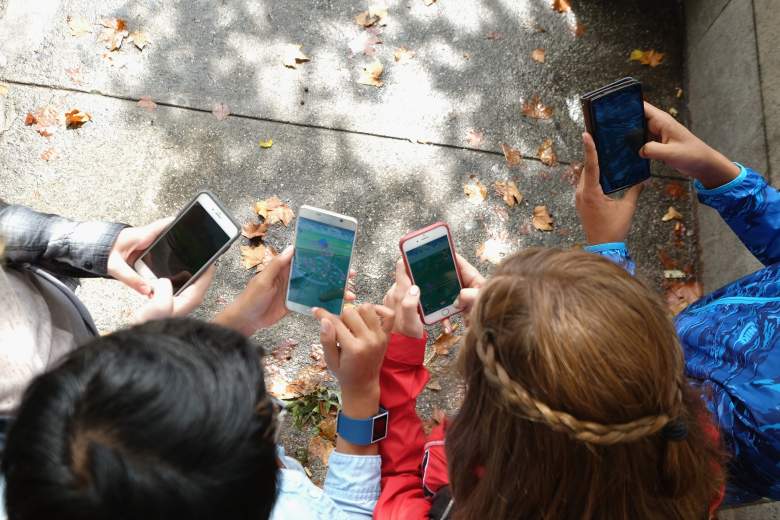
New York City residents gather to play Pokemon Go in Central Park. (Getty)
The developers of Pokemon Go are being sued amid concerns that the app encourages trespassing.
According to Polygon, a New Jersey man, Jeffrey Marder, says that many Pokemon Go players have come to his home in order to catch Pokemon. He is suing The Pokemon Company and Nintendo.
“At least five individuals knocked on plaintiff’s door and asked for access to plaintiff’s backyard in order to ‘catch’ Pokémon that the game had placed in Plaintiff’s residence in West Orange, New Jersey — without plaintiff’s permission,” the suit says.
Marder’s lawsuit is currently seeking class action status, as it notes that his situation has become common since the game launched on July 6th. The lawsuit particularly makes note of private property that has been designated as a PokeStop or a Pokemon gym.
His complaint is far from the first to pop up over the past month. Pokemon Go‘s gameplay involves exploring the real world, and players are given a map of their area so they can go outside and catch Pokemon. Pokestops are placed on certain locations, and visiting these real-life areas rewards users with items. Additionally, some real landmarks and buildings take the form of Pokemon gyms, where players can battle Pokemon in an attempt to claim the area.
But many PokeStops and gyms have been placed on private property or in inappropriate venues, such as the Hiroshima Peace Memorial Park and the Holocaust Museum. This suit claims that the game is making unauthorized use of property. It also points to a section of the Pokemon Go website that makes reference to the fact that some Pokestops are located on private property, an example of Niantic being aware of this problem.
“To create that immersive world, Niantic made unauthorized use of Plaintiff’s and other Class members’ property by placing Pokéstops and Pokémon gyms thereupon or nearby,” the suit says. “In so doing, Niantic has encouraged Pokémon Go’s millions of players to make unwanted incursions onto the properties of Plaintiff and other members of the class — a clear and ongoing invasion of their use and enjoyment of their land from which Defendants have profited and continue to profit. ”
Niantic Labs does, however, encourage players on their website not to trespass or attempt to catch Pokemon in any area that is not open to the public.
The lawsuit stresses that the game has been extremely profitable and says that it is seeking “damages, disgorgement or other monetary or equitable relief” for the plaintiff.